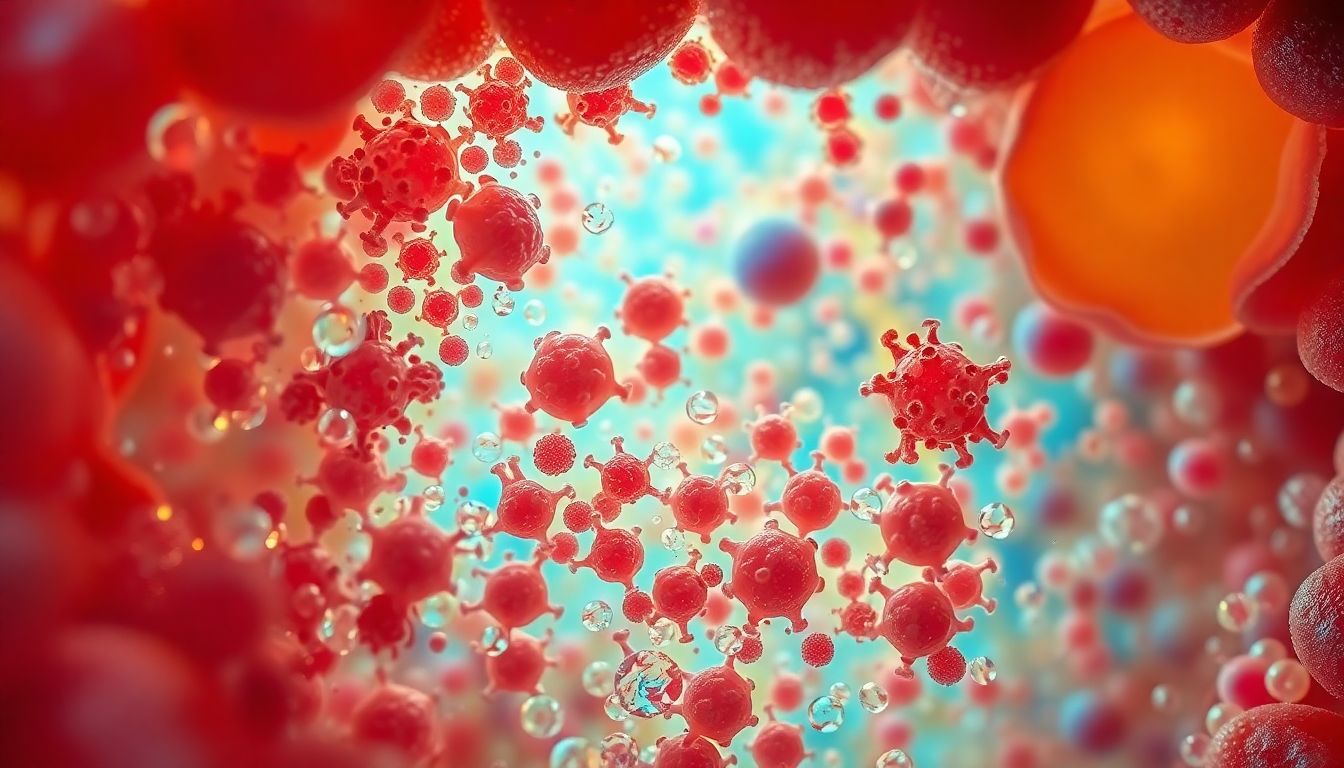Microbiome-based diets

Microbiome Diet: Eat Your Way to a Healthier Gut and Happier You
Isn't it wild how trillions of tiny organisms reside in your gut? These little guys influence everything. From your digestion all the way to your mood! It's time to ditch those restrictive diets. Embrace a revolutionary approach. It's called the microbiome diet!
Forget counting calories. Instead, focus on nourishing the ecosystem within. This isn't just a fad. It's a science-backed route to better health. Prepare to discover your gut's secrets. Unlock a healthier, happier you with food.
What is the Microbiome Diet and How Does It Work?
The microbiome diet isn't your typical diet. It's about nurturing your gut's ecosystem. This diet focuses on eating foods that feed good bacteria. This improves overall health. Unlike traditional diets, it's not just about weight loss. It's about balance. A typical microbiome diet has phases. These help heal and rebalance your gut.
Understanding the Gut Microbiome Ecosystem
Your gut microbiome is full of bacteria, fungi, and viruses. Many bacteria exist, some good, some bad. "Good" bacteria aid digestion and boost immunity. "Bad" bacteria can lead to health problems. A balanced gut has more good bacteria than bad. This balance is vital for health.
The Core Principles of Microbiome-Based Eating
The microbiome diet has key principles. Eat prebiotics, probiotics, and postbiotics. Prebiotics feed good bacteria. Probiotics are good bacteria themselves. Postbiotics are what good bacteria produce. Avoid processed foods, sugar, and artificial sweeteners. They harm your gut. It also involves eating fiber-rich foods.
The Multi-Phase Approach: A Step-by-Step Guide
The microbiome diet often uses phases. First, there's an elimination phase. This removes foods that harm the gut. Next, a reintroduction phase adds foods back slowly. See how your body reacts. Finally, a maintenance phase keeps your gut healthy. Each phase lasts for a period. For example, the elimination phase may take a few weeks.
The Science Behind the Microbiome Diet: Evidence and Benefits
There's real science behind this diet. Studies show it can work. You'll see better digestion and weight management. Plus, it helps your immune system. This is because a healthy gut is the basis of your wellness.
Linking Gut Health to Overall Wellbeing: The Research
Research links gut health to many things. This includes conditions like IBS and autoimmune issues. Mental health also gets a boost. Studies show that a balanced gut affects mood. A healthy microbiome may help improve your psychological state.
Beyond Digestion: Exploring the Wide-Ranging Benefits
The benefits go past digestion. You may see healthier skin and more energy. Brain function can improve too. Your gut affects so much more than you think.
Addressing Skepticism: Separating Fact from Fiction
Some people are skeptical about this diet. That's understandable. But evidence supports the benefits. Remember, everyone reacts differently. Results can vary from person to person.
Foods to Embrace and Foods to Avoid on a Microbiome Diet
Knowing what to eat is vital. Some foods promote a healthy microbiome. Others can mess it up. Here's a quick guide to get you started.
The Gut-Loving Grocery List: What to Load Up On
Load up on prebiotic-rich foods. Garlic, onions, and asparagus are good choices. Add probiotic-rich foods. Yogurt, kefir, and sauerkraut can help. Eat fiber-rich foods too. Fruits, veggies, and whole grains are fantastic.
Steering Clear of Gut Disruptors: Foods to Limit or Avoid
Avoid processed foods. Limit sugary drinks and artificial sweeteners. These harm the microbiome. Antibiotics also affect gut health. Only use them when needed.
Meal Planning for a Thriving Microbiome: Sample Recipes and Ideas
Plan meals around gut-friendly foods. Try a breakfast of yogurt with berries and nuts. A lunch of salad with grilled chicken and mixed greens works well. For dinner, go for salmon with roasted vegetables. Snack on a handful of almonds or a piece of fruit.
Optimizing Your Microbiome Diet: Tips and Strategies for Success
Want to get the most from this diet? Here are some tips for success. They will help you along the way. Personalize your nutrition for your unique needs.
Personalized Nutrition: Tailoring the Diet to Your Unique Needs
Everyone's microbiome differs. Keep a food diary. Track how you feel after eating different things. Talk to a doctor or dietitian. They can give personalized advice.
The Role of Supplements: Probiotics, Prebiotics, and More
Consider supplements. Probiotics and prebiotics can help. Choose high-quality supplements. But don't self-treat. Ask a professional first.
Lifestyle Factors: Sleep, Stress, and Exercise
Sleep, stress, and exercise matter too. They affect gut health. Aim for good sleep. Manage stress with techniques like yoga. Exercise also helps your microbiome.
Potential Challenges and How to Overcome Them
The diet may have challenges. You might have side effects. Here's how to handle them.
Common Side Effects: Bloating, Gas, and Digestive Discomfort
You might get bloating or gas at first. This is normal. Start slow. Drink lots of water. These symptoms usually disappear.
Navigating Social Situations and Dining Out
Social events can be hard. Plan ahead. Choose healthy options when eating out. Bring your own food if needed.
Maintaining Long-Term Adherence: Staying Committed to Your Gut Health
Be consistent and patient. Find a support system. This diet is a lifestyle. It's not a quick fix.
The Future of Microbiome Research and Personalized Nutrition
Microbiome research is growing. Personalized nutrition is coming. The future of gut health looks bright.
Cutting-Edge Research: What's on the Horizon for Gut Health
New research areas exist. For example, fecal microbiota transplantation. They are also working on targeted therapies for gut problems.
Personalized Nutrition: Tailoring Diets to Your Unique Microbiome
Testing can help tailor diets. You can learn about your microbiome. Then, eat for your specific needs.
Conclusion
The microbiome diet offers a path to better health. It focuses on nurturing your gut. By eating the right foods and making positive lifestyle changes, you can have a healthier, happier life. It is a journey, not a destination.
dr iqbal {md}


Comments
Post a Comment